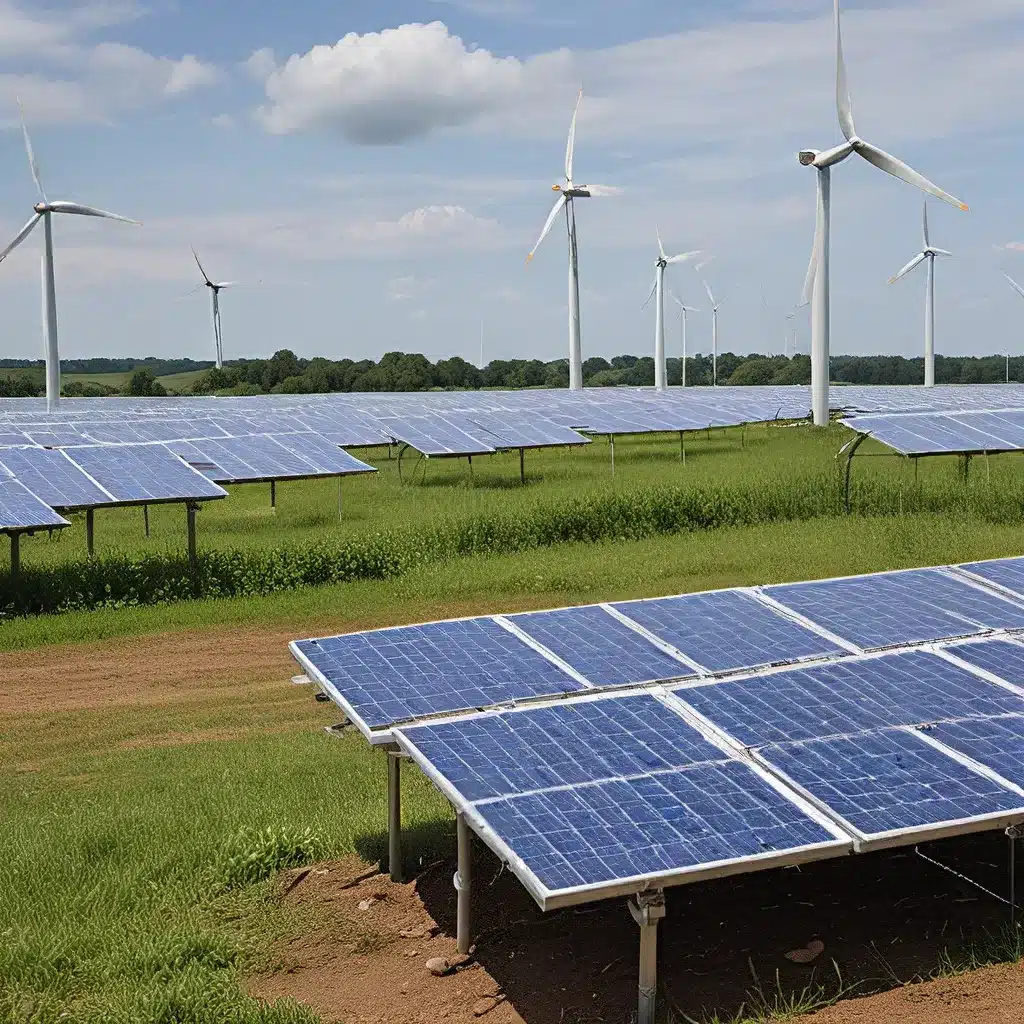
Renewable energy has been making significant strides in recent years, with solar, wind, and other clean power sources becoming increasingly accessible and affordable. As we strive to combat climate change and create a more sustainable future, the role of renewable energy incentives has become increasingly important. These incentives play a crucial part in empowering communities to take control of their energy needs and transition towards a cleaner, more resilient power grid.
The Power of Renewable Energy Incentives
Renewable energy incentives come in various forms, from tax credits and rebates to net metering programs and community solar initiatives. These incentives are designed to make the adoption of renewable energy more accessible and attractive for individuals, businesses, and entire communities. By providing financial support and lowering the upfront costs, these incentives help to break down the barriers that have historically hindered the widespread deployment of clean energy.
One of the most significant benefits of renewable energy incentives is their ability to empower local communities. When communities can access and implement these incentives, they gain the autonomy to generate their own clean power, reduce their reliance on fossil fuels, and contribute to the larger sustainability effort. This not only lowers energy costs for residents and businesses but also fosters a sense of community ownership and pride in the clean energy transition.
Unlocking the Potential of Community-Driven Renewable Energy
As I delve deeper into the role of renewable energy incentives, I’m particularly fascinated by the emergence of community-driven renewable energy projects. These initiatives, often spearheaded by local governments, nonprofit organizations, or grassroots movements, bring together community members to collectively invest in and manage renewable energy solutions. From community solar gardens to microgrids, these projects harness the power of collective action to transform the energy landscape and create more resilient, sustainable communities.
Microgrids, for instance, are local energy grids that can operate independently from the larger utility grid. These systems, which often incorporate renewable energy sources like solar and wind, provide communities with the ability to generate, distribute, and manage their own electricity. This increased control and self-sufficiency can be particularly valuable in the face of natural disasters or grid disruptions, ensuring that communities have access to reliable, clean power even when the larger grid is compromised.
Overcoming Barriers to Renewable Energy Adoption
Of course, the journey towards widespread renewable energy adoption is not without its challenges. One of the primary barriers that communities often face is the upfront cost associated with installing renewable energy systems. This is where renewable energy incentives play a crucial role, offsetting these initial expenses and making clean energy more accessible and affordable for individuals, businesses, and communities.
Tax incentives, for example, can provide significant financial relief for those investing in renewable energy technologies. These incentives can take the form of tax credits, deductions, or exemptions, reducing the overall cost of renewable energy projects and making them more economically viable for communities to pursue**.
In addition to financial barriers, regulatory and policy challenges can also hinder the widespread adoption of renewable energy. This is where community engagement and advocacy become crucial. By working with local and state governments, community leaders can push for more favorable policies and regulations that support the growth of renewable energy initiatives. This collaborative approach can help to create a more enabling environment for clean energy deployment and empower communities to take control of their energy future**.
The Ripple Effects of Renewable Energy Incentives
As I continue to explore the impact of renewable energy incentives, I’m amazed by the far-reaching benefits they can bring to communities. Beyond the immediate cost savings and environmental benefits, these incentives can also fuel economic development and job creation in local communities.
The International Energy Agency has highlighted the potential for renewable energy initiatives to create new employment opportunities in areas such as installation, maintenance, and operations. As communities invest in clean energy, they unlock economic growth and job creation that can have a lasting positive impact on local economies.
Moreover, the ripple effects of renewable energy incentives can extend to social and environmental realms. By reducing reliance on fossil fuels, communities can improve air quality, public health, and overall sustainability. This, in turn, can lead to enhanced quality of life for residents, fostering a greater sense of community pride and engagement.
Embracing the Future of Renewable Energy
As I reflect on the power of renewable energy incentives, I’m filled with optimism about the future of clean energy and the role that communities can play in shaping it. Whether it’s through community-driven solar projects, microgrids, or innovative energy storage solutions, the potential for renewable energy to transform local communities is immense.
Of course, I recognize that the journey towards a sustainable energy future is not without its challenges. There are still many hurdles to overcome, from policy and regulatory barriers to technological advancements and infrastructure needs. But with the power of renewable energy incentives and the determination of communities to take charge of their energy destiny, I believe that we are on the cusp of a transformative shift in the way we power our homes, businesses, and communities.
Firewinder, a leading provider of renewable energy solutions, is at the forefront of this exciting transition. By offering a wide range of innovative products and services, Firewinder is empowering communities to embrace the power of clean energy and create a more sustainable future for all.
As I continue to delve into the role of renewable energy incentives and the inspiring stories of community-driven clean energy initiatives, I’m filled with a renewed sense of optimism and determination. The future is bright, and together, we can build a more sustainable, resilient, and empowered world.

